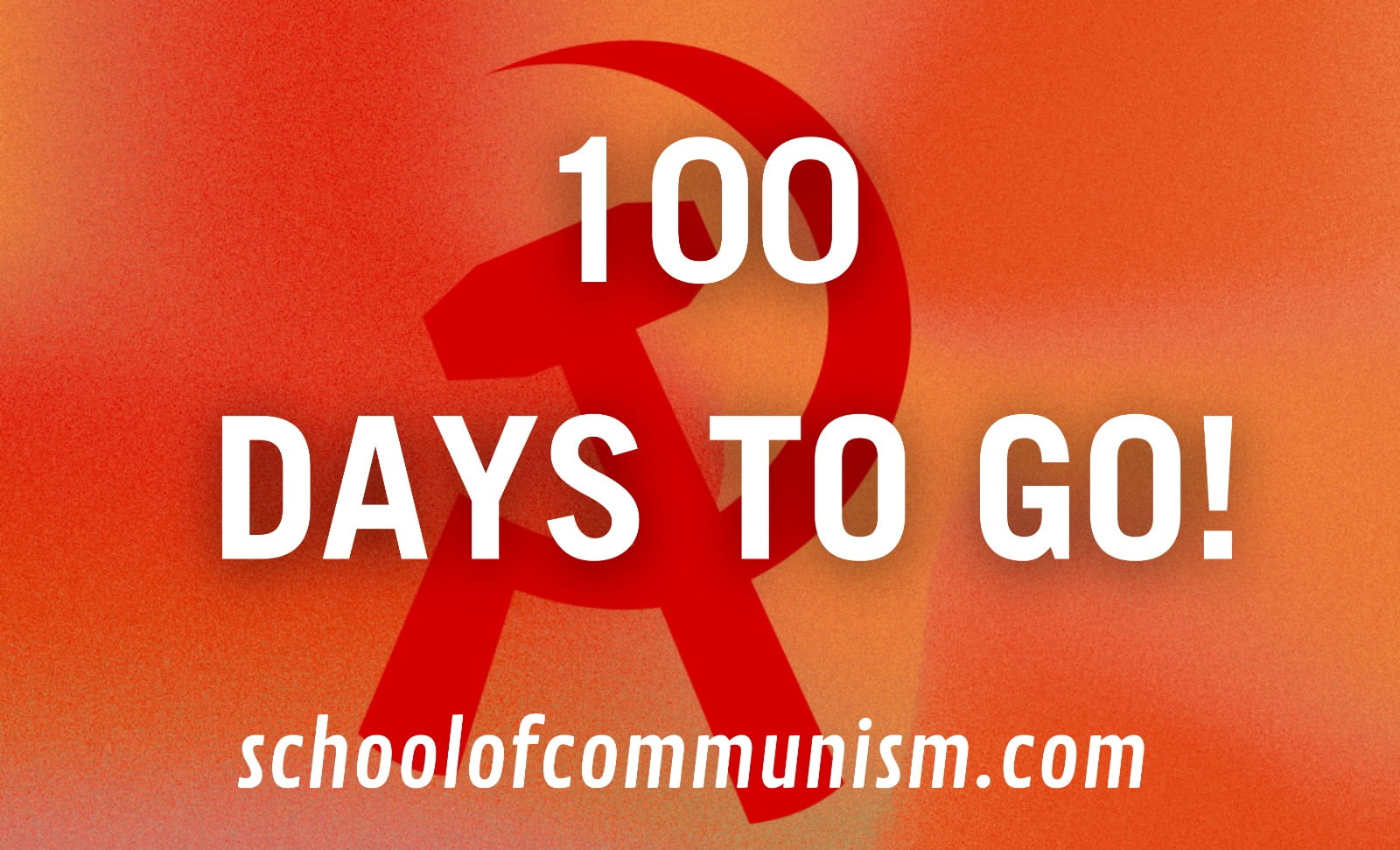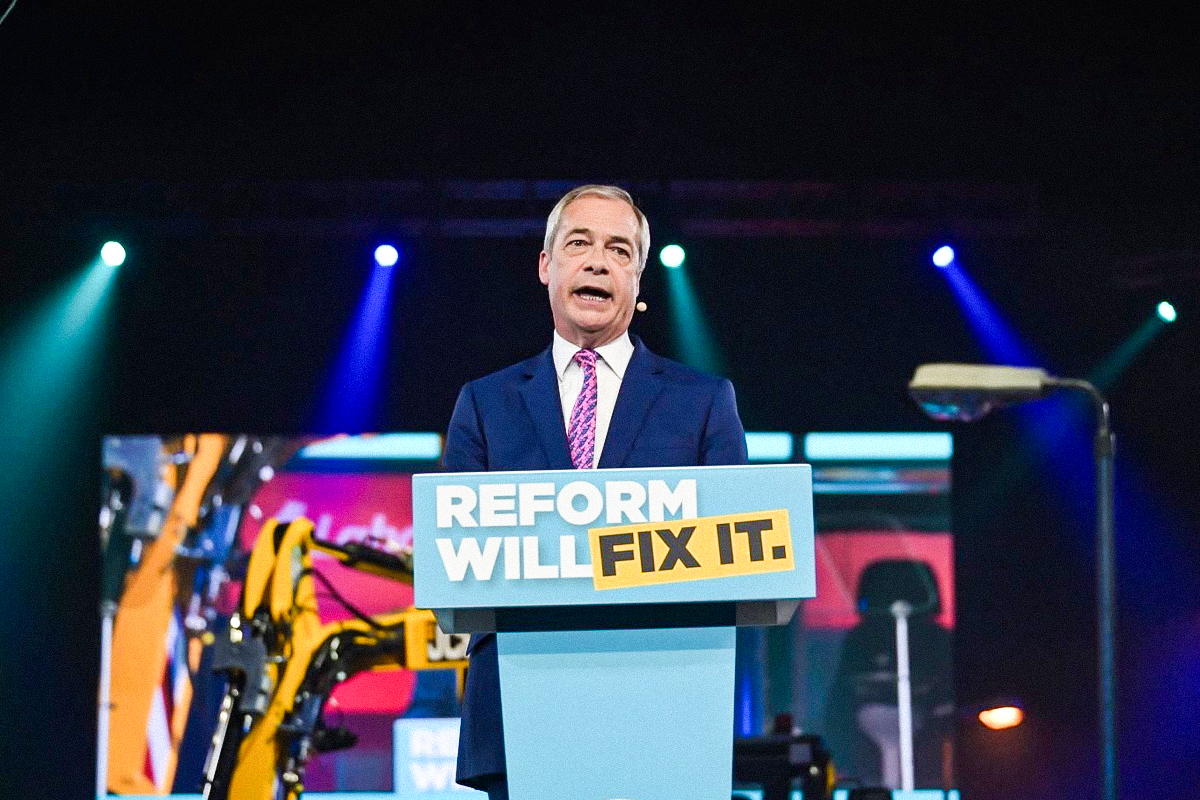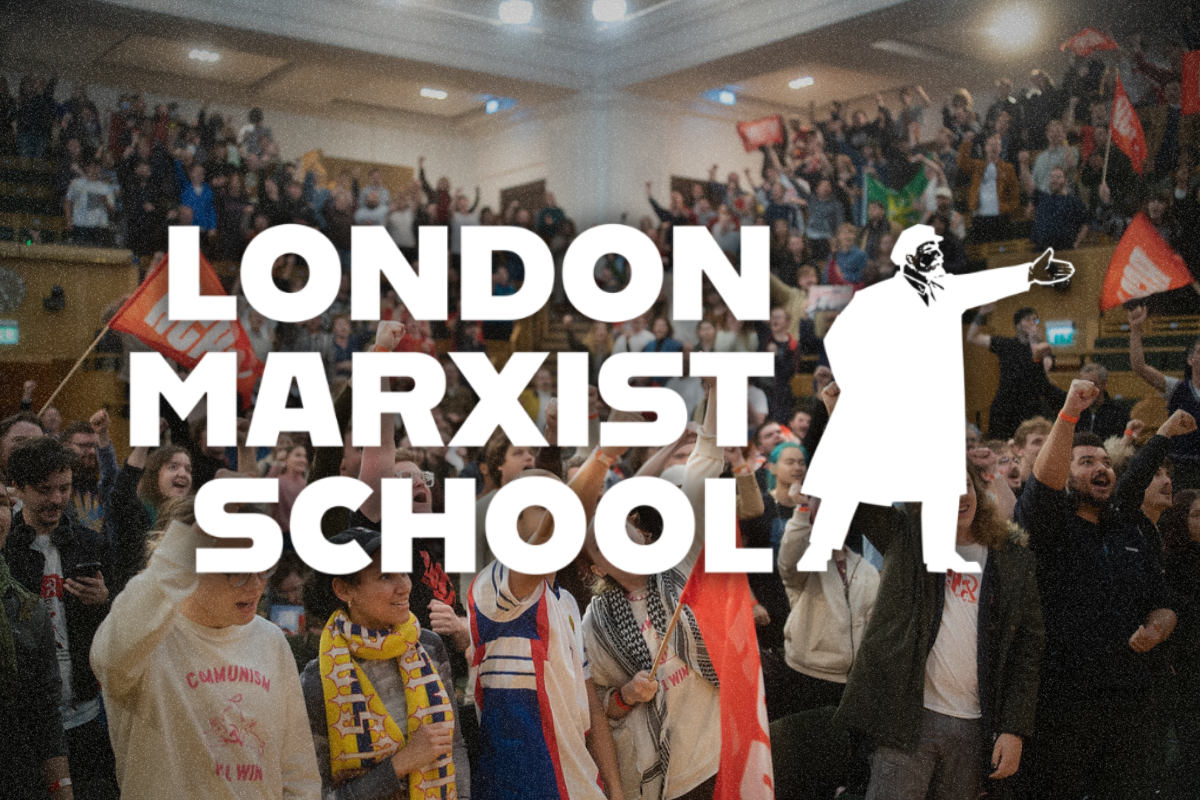In 100 days, the International Marxist Tendency will host a conference: The World School of Communism. This will be six days of talks and discussions where we will also launch a Revolutionary Communist International!
All over the world, communists are already electing delegates who will attend this event in-person in Italy. In addition, all of these talks will be streamed online and you can watch them live or catch up on the recordings later in the day.
Sign up now to receive updates on the School as well as information on watch parties and more!
We will provide more information – including recommended readings – in the coming weeks, but we are proud to present below the topics that will be discussed at the event.
On the first day, Alan Woods will present the launch of the new Revolutionary Communist International as well as introducing its brand new Manifesto, which will be discussed and voted on by the delegates.
The final day will have Hamid Alizadeh report on the incredible work of communists around the world in the recent period, and explain our plans for the future. During the week, Alan Woods will also give a talk on ‘Dialectics: The Algebra of Revolution’.
If this wasn’t enough, the rest of the week will have 18 talks with 3 happening simultaneously. Luckily, comrades will not have to make any painful decisions because they will be able to catch up with any sessions they missed by watching the recordings that will be accessible through our website.
We are happy to present the list of talks below.
The necessity of a revolutionary philosophy: Dialectical materialism

Lenin once said that “without revolutionary theory there can be no revolutionary movement”. In order to make the struggle for communism successful, it must be guided by correct ideas. This talk will show the reactionary nature of all manner of reactionary theories such as postmodernism, which are pushed to young people in revolutionary clothing. It is only the philosophy of Marxism – dialectical materialism – that can guide the work of revolutionaries to success.
Why we need a theory of history: Historical materialism

The bourgeois historian Arnold Toynbee once said that “history is just one damn fact after another”. This talk will explain, however, that underlying all the seeming accidents that make up history are general laws which can be studied and understood. This means that the study of history can enable you to make certain predictions in order to guide future struggles to success. For this reason, it is vital that communists have a theory of history.
What is Capitalism? – An introduction to Marxist economics

There is a growing hostility to the status quo and therefore to capitalism that is developing amongst a layer of society. However, what actually is capitalism? This talk will uncover the hidden workings of the capitalist system, which was best explained by Karl Marx. In doing so, it will set out exactly how it works, and how it can be overthrown.
The Bolsheviks in power

In the span of a few short years, the Bolsheviks went from a party that had been decimated by reaction to a shining beacon to the revolutionary masses across the world. Despite the invasion of 21 foreign armies, they won a desperate battle for survival, whilst making huge strides for the working class, founding the first free health service, legalising divorce and abortion, decriminalising homosexuality and more. This talk will cover the early USSR, the period of the Civil War and the urgent tasks a successful revolution faces.
How the Communist International was built

The Communist International was founded by Lenin and Trotsky as a tool of world revolution. Bringing together communist parties across the globe, it was a way to sharpen the theoretical and practical abilities of communists internationally. This talk will trace the origins and early years of the Communist International, showing the need for us to build a similar organisation in the world today. The parties that made up the Communist International had varied origins, with some growing from small propaganda organisations and others being splits from the major reformist parties. If we are to create new mass revolutionary communist parties, we should study how they were formed in the past.
War and Revolution: A Leninist Approach

It can be easy to look at the world, with the growing list of wars and throw your hands up in despair. What is it, though, that actually causes wars? And how can we build a world without it? This talk will explain Lenin’s approach to war and show how it applies to today.
How can the communists conquer the masses?

As communists, our task is not simply to discuss the ideas of Marxism in closed circles. In order for a revolution to be successful, communists must seek to reach the widest possible layer of revolutionary workers and youth, and convince them of the need to overthrow the capitalist system. In this talk, we will discuss how communists can spread revolutionary ideas among the broadest layers possible and struggle to build mass communist parties everywhere.
Did communism really fail?

Consistently we are told that the fall of the Soviet Union was incontrovertible evidence of the failure of communism. This concerted campaign of slanders and lies, which falsely ties communism to the bureaucratic crimes of Stalinism, is spread by the ruling class in order to undermine the struggle to overthrow capitalism today. This talk will explain how and why the USSR collapsed and demonstrate that it was not communism, but a bureaucratic deformation which failed.
What is imperialism?

While many on the left will rightly decry the horrors of imperialism, few truly understand it. From the Ukraine conflict, to the war in Gaza, to the competition between China and the US, imperialism dominates world relations and as such it is the duty of communists to understand it. This talk will provide a thorough Marxist analysis of imperialism and the approach communists must take in the world today, basing itself on Lenin’s theoretical masterpiece Imperialism: the Highest Stage of Capitalism.
Communists and the state

We are often told that politicians, courts, the police and all the other trappings of the state are simply neutral arbiters of justice that act in the best interests of all. In reality, however, communists understand that this is a mere smokescreen for the concrete class interests that underpin the state. This talk will expose the role played by capitalist states in defending the present system of oppression and exploitation, and explain how a workers’ state would ensure the transition to communism after the revolution.
What is behind ‘right populism’ and how do we fight it?

What is behind the rise of right-wing figures such as Trump, Le Pen and Meloni? The liberal media bemoans the death of democracy and heaps the blame on ‘ignorant’ voters. The task of the communists, however, is not to cry, but to understand. This talk will explain the deep polarisation that is sweeping the world in this period of capitalist crisis, and show that the rise of the right is due to the complete lack of any alternative offered by the supposed ‘Lefts’. It is a radical and revolutionary programme that can defeat these figures.
The Russian Revolution: The greatest event in human history

In 1917, the working class in Russia did something that had never been done before. For the first time, capitalism was overthrown and the working class came to power and held on to it, under the leadership of the Bolshevik Party. This monumental event sent shockwaves around the world, igniting the hopes and aspirations of millions of the downtrodden and oppressed. This talk will describe and defend the Russian Revolution, emphasising the wealth of lessons that communists today can draw from it.
World revolution or Socialism in one country

After Lenin’s death, when it became clear that the Soviet Union was isolated in a sea of capitalism internationally, the Stalinist bureaucracy latched onto the so-called theory of socialism in one country. This nationalist, counter-revolutionary idea was completely at odds with the perspective of Marx, Engels and Lenin, that the revolution would need to spread to at least all the major economies for it to be successful. This talk will demonstrate the reactionary conclusions of socialism in one country, exposing it as an aberration of Marxist theory that should play no role in the class struggle today.
Lenin & Trotsky: What they really stood for

Lenin and Trotsky were the undeniable leaders of the Russian Revolution of 1917. These two great Bolsheviks played a central role in providing the Russian masses with the perspective and tactics they needed to take power. Despite this, a baseless myth is still propagated today, that Lenin and Trotsky fundamentally opposed each other, both politically and personally. This talk will bring out the truth of the connection between Lenin and Trotsky, showing that on all fundamental points and at all crucial moments, these two great revolutionaries were united.
How the Bolshevik Party was built

The Bolshevik Party was the most revolutionary party that has ever existed. But it did not come into being fully formed. Over many years, Lenin built the party from the ground up, as it expanded from small reading circles to become a mass organisation of the Russian working class. This is the only party in history to have led the working class to the successful overthrow of capitalism. A careful study of its history can therefore provide us with a guide to building a similar party today.
Communists and the National Question

The issue of national oppression and how to fight it is an important struggle facing the world today. This talk will look at the Marxist approach to this crucial yet difficult question, drawing out key examples of what a revolutionary struggle against national oppression looks like in different cases.
The struggle against oppression – Working class unity or identity politics?

Identity politics is a pervasive approach on the left, which seeks to divide people according to their race, gender, sexuality etc. Communists, in contrast, fight for the maximum unity of the working class in their united struggle against oppression. This talk will explain how communists seek to end oppression once and for all by abolishing class society, in contrast to the impotent and divisive methods of identity politics.
Does Communism mean bureaucracy?

Communism is conflated with the history of the USSR and the crimes of the bureaucracy and Stalin. Those who disagree with the Marxists blame communism itself for this. In actual fact, Lenin himself recognised the emerging bureaucracy and fought against it. This talk will cover Lenin’s fight against bureaucracy and for a healthy regime in the party.






